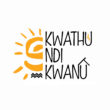By Aletiru Diana Bibian
Resource Mobilization Advisor
Despite the existence of legal frameworks to empower and protect women being developed and implemented, Malawi registered a 16.7% increase in cases of Gender Based Violence (GBV) in 2022 from 13,002 in 2021 to 15,178 in 2022 (Malawi Police).
The impact of GBV has significantly lowered the opportunities for the young women to access finance, markets and socio-economic empowerment further exacerbated by social and cultural barriers that limit their participation in economic development.
Kwathu Ndi Kwanu (KNK) is a Non Governmental Organisation (NGO) based in Malawi that exists to economically empower survivors and victims of GBV in Malawi including refugee women and it was founded and led by young women.
The situation is worse for refugee young women because the Government of Malawi has an encampment policy which restricts refugees from certain rights such as access to tertiary education and formal employment. Only 6% of women in Malawi among the nationals have access to formal credit. As a result, they struggle to invest in their businesses, limiting their ability to innovate and scale up their operations.
With limited access to formal credit and marketing opportunities, women’s entrepreneurship has been concentrated in low-profit, low-growth sectors with limited market access. With invaluable technical support provided by Aletiru Diana Bibian, a WUSC South-South Volunteer serving as the Resource Mobilization Advisor (RMA), KNK’ developed the WEAVE project proposal which earned approval for funding in August 2023 from World University Services Canada under the IGNI+E Partner Innovation Fund.
Reactions to the News of Success
“It came as a surprise when ED called to tell me the news that the WEAVE Project Proposal had been approved. Very exciting chapter for Kwathu Ndi Kwanu (KNK)”, exclaimed Sharonrose Chilinda the Program Development Lead at KNK.
‘Receiving the Partner Innovation Funding is truly unbelievable to me. It signifies not just financial support but the belief that our (KNK’s) mission to support the Victims and Survivors like me is not only valid but crucial. It is a profound validation that through this support, we can truly make a difference and nurture hope for those who have walked a similar path”
“This could not have been possible without Diana, I thank WUSC for sending her to support us with Resource Mobilisation”, said Ms. Chimwemwe Mlombw, the Executive Director of KNK. The news did not only excite the RM Advisor and the staff of KNK alone but the key stakeholders and the target beneficiaries too. A young woman who participated in the FGD could not hide her excitement when visited by the great news. “I am just very excited right now and can not imagine that I will be able to get the skills I need to work and employ myself”, said Ms. Subira Mushipa, a refugee from Dzaleka refugee camp.
“We are thrilled to share incredible news from our partner Kwathu Ndi Kwanu! Congratulations on your remarkable achievement with the IGNI+E Partner Innovation Fund. We look forward to witnessing your amazing work over the next 2 years as you implement the Women Artisans Economic Value Enhancement (WEAVE) Project”, partly read a Facebook post by Mr. Dirshaye Beyene the Communications Advisor from WUSC Malawi. https://www.facebook.com/photo/?fbid=598734095797549&set=a.551735407164085
This transformative two-year project, known as “WEAVE: Women Artisans Economic Value Enhancement in Malawi,” is underpinned by the primary goal of enhancing the socio-economic well-being and livelihoods of young women that are survivours and victims of GBV; targeting both refugees and Malawian nationals residing in Salima District and the Dzaleka Refugee Camp.
This project is thoughtfully crafted to not only strengthen the abilities and economic prospects of these young women but also to foster financial inclusion and improve their access to household incomes, especially for those who have endured the traumatic experience of GBV.
Findings from the focus group discussions (June 2023) held with the young women from Dzaleka refugee camp to inform the design of this successful project revealed that 86% of the young women testified that they became teenage mothers because they engaged in offering sex for financial gains to the men who continuously harassed and abused them sexually because they lacked employable skills and access to economic opportunities to create jobs for themselves.
Therefore, the success of the WEAVE Project could not have come at a better time than this to provide the employable skills and the alternative sources of income to the young women that have interfaced with GBV in their quest for financial gains for the survival and wellbeing of their families.

